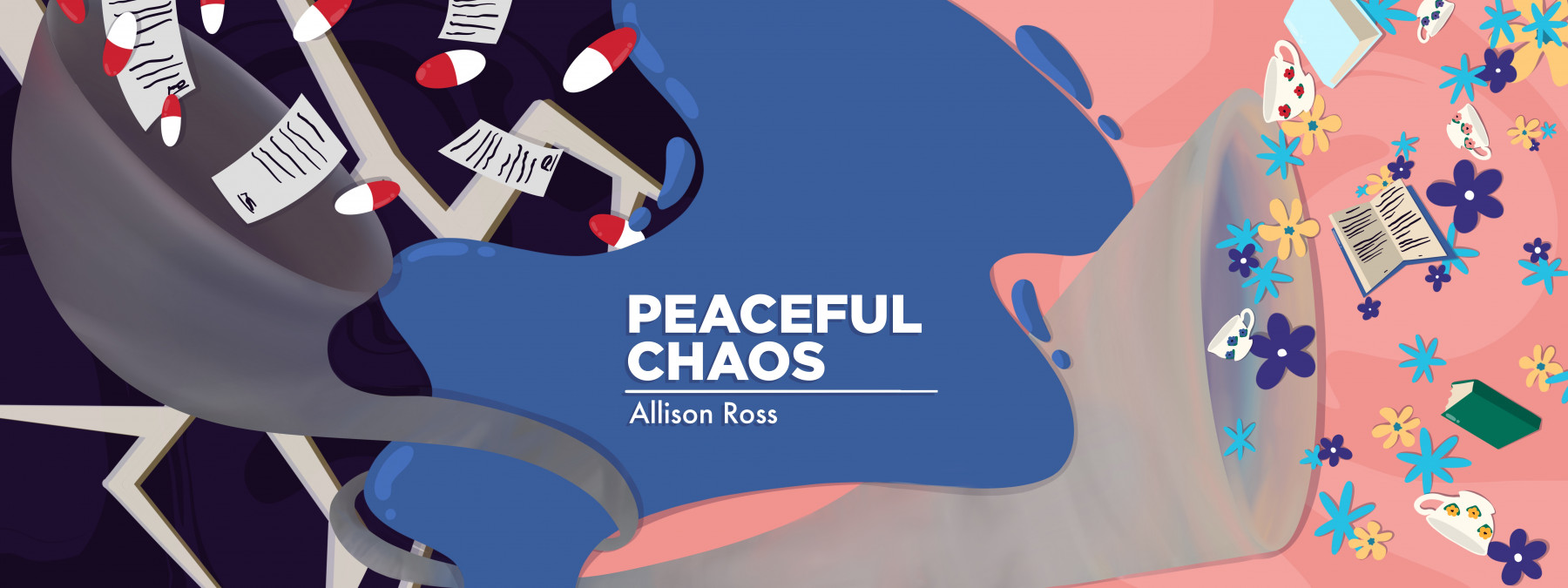When Life Becomes Overwhelming, These 4 Tips Can Help
Written by |

It’s common this time of year for us to get busy. Summer plans are brewing, students are graduating, and people are heading outdoors to enjoy the beautiful weather. Work obligations build up. The weeks slip by. There’s so many things on the calendar and so much distraction.
Regardless of organizational or multitasking skills, humans only have the capacity to handle a certain quota of information per day. The brain is amazing in the details it can store, but that number is not infinite.
Everyone gets physically tired at times, but especially so when we’ve been diagnosed with an autoimmune disorder like vasculitis. The stress and anxiety can spiral out of control and make us think we’ve lost our connection to ourselves and the world around us. On the worst days, it feels like getting caught in a swiftly coursing river, and there’s nothing we can do but try to keep our heads above water.
So what can we do when we reach our breaking point? Following are four things I’ve learned to do to take care of myself, and I hope they can help you, too.
1. Prioritize your energy
When you simply can’t handle everything on your plate, decide what you can reasonably afford to let go.
It helps to make a list so you can visually assess your priorities. Seeing the line items of your daily obligations is a tangible way to face the challenges head-on and come up with a workable plan to get through the day, week, and month.
I’ve used this method often, even in remission, where I’ve been since 2013. Every so often, I cancel work or social plans to rest, recharge, and assess my mental health. Though it may mean missing out on a bit of income or lost time with a friend, those few precious hours in my day mean I can get back into the daily routine with renewed energy. Ultimately, those things can wait; my physical health won’t.
2. Be kind to yourself
I’ll share with my readers a place of vulnerability: I really struggle with this one! As a strong-willed, independent person, I pride myself on keeping up a demeanor of strength no matter what unexpected setbacks occur. It’s not easy for me to let my guard down and admit that I’m having a tough time.
As a result, I tend to berate myself for feeling emotional or admitting that I need psychological support. But that’s precisely what happens when the vasculitis becomes high-maintenance, let alone other difficulties of family, work, lifestyle, and relationships that everyone faces.
Life is not easy. It’s OK to feel as though the weight of everything is too much for you to bear. The question isn’t whether you should feel stressed, it’s how you cope with that stress in a healthy and effectual way.
On that note …
3. Practice self-care
Whatever the mind thinks manifests in the body. We know that negative emotions are harmful to physical health, and may even exacerbate certain conditions. So it’s empowering to know that at least a small part of an autoimmune disorder could be within a patient’s control, according to the way they treat themselves.
Nothing sends the signal that “it’s going to be OK” like pampering. However this appeals to your personality — a hot bath, extra sleep, a delicious meal, even things that seem superficial like a fancy manicure — indulge in them once or twice a week to dissolve the buildup of daily stress. Let the tension release however works best, showing your body that it is safe to relax.
If it’s your thing, experiment with positive affirmations for an extra mental health boost.
4. Refocus on the big picture
You may be sick now, but this stage will not last forever. It’s easy to get bogged down in everyday trivialities, forgetting that life’s difficulties tend to move in cycles. Undoubtedly, the more time that goes on, the better you’ll be at managing your disease so that you can live with confidence regardless of your state of health.
There is goodness, beauty, and friendship all around you. When the path gets rocky, seek out those things to remind yourself why it’s worthwhile to keep living to the fullest. Disease is an unfortunate setback, but it’s within our power to mitigate the effects.
Keep living, keep pushing, and keep seeking positivity. Tomorrow is a new day.
Note: ANCA Vasculitis News is strictly a news and information website about the disease. It does not provide medical advice, diagnosis, or treatment. This content is not intended to be a substitute for professional medical advice, diagnosis, or treatment. Always seek the advice of your physician or other qualified health provider with any questions you may have regarding a medical condition. Never disregard professional medical advice or delay in seeking it because of something you have read on this website. The opinions expressed in this column are not those of ANCA Vasculitis News or its parent company, Bionews, and are intended to spark discussion about issues pertaining to ANCA vasculitis.







Bonnie Kent
I have a nephew that was just diagnosed with this disease. I have never heard of this. Please put me on your list to receive information relating to this terrible disease.